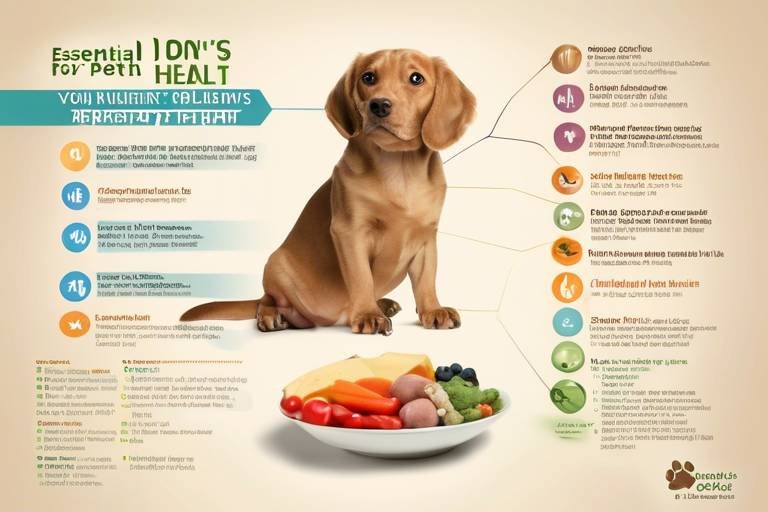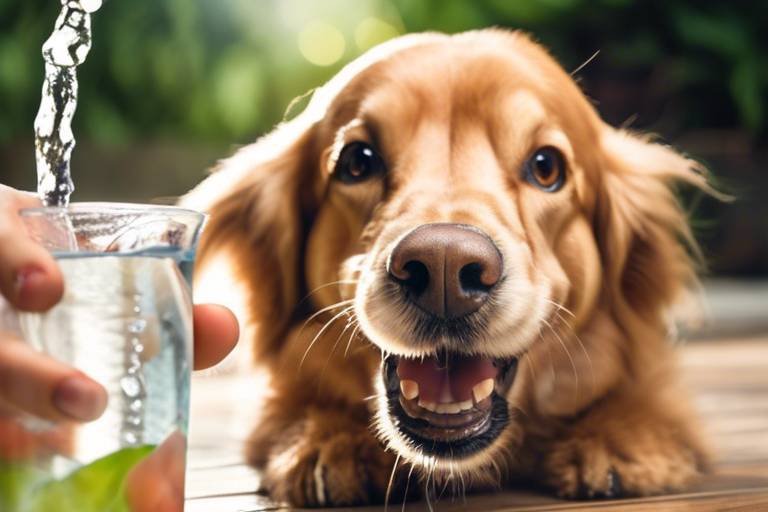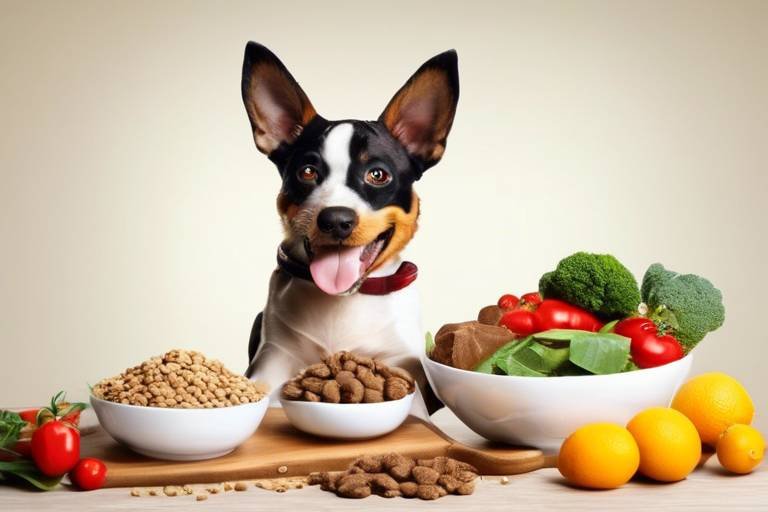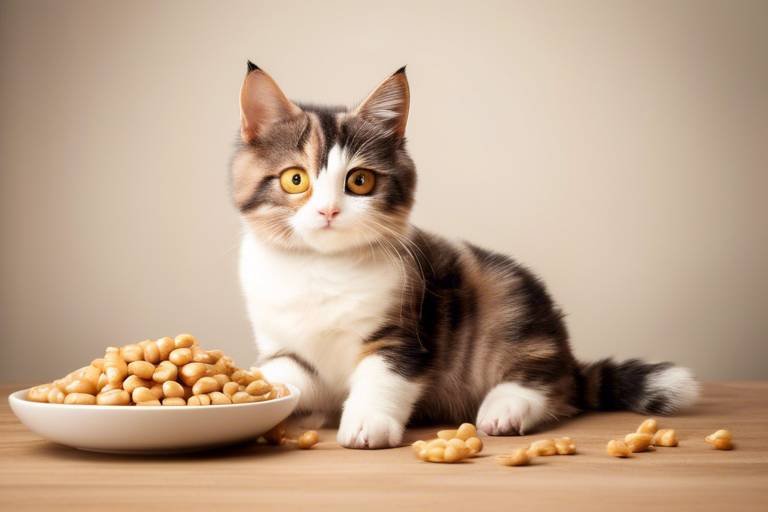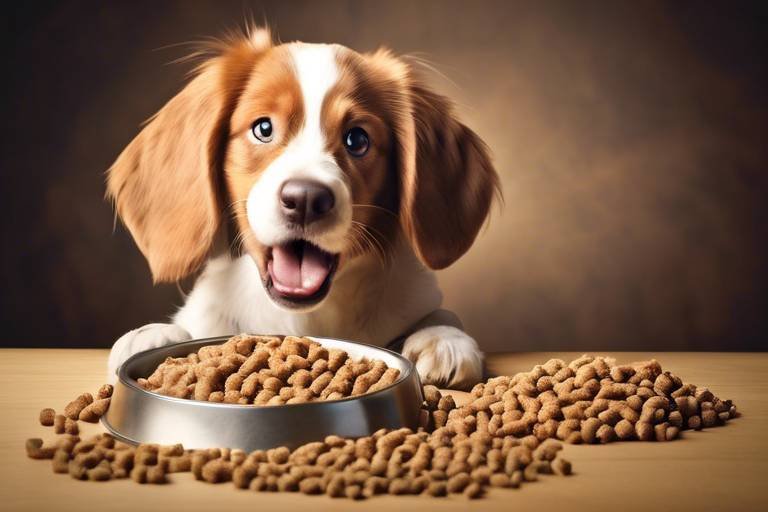Essential Nutrients for Your Pet's Health
When it comes to our furry companions, their health is often at the top of our priority list. Just like us, pets require a balanced diet to thrive, and understanding the essential nutrients they need is key to ensuring their well-being. Think of nutrients as the building blocks of life, each playing a unique role in maintaining your pet's vitality and happiness. Without the right balance, your pet could face a myriad of health issues, from lethargy to more serious conditions.
So, what exactly are these essential nutrients? Well, they can be categorized into several groups: proteins, fats, carbohydrates, vitamins, and minerals. Each group serves a specific purpose, and together, they create a harmonious diet that supports your pet's growth, energy levels, and overall health. Imagine trying to build a house with missing bricks; the same concept applies to your pet's diet. If one nutrient is lacking, it can lead to structural weaknesses in their health.
In this article, we will delve into the importance of each nutrient, where to find them, and how to ensure your pet is getting a balanced diet. From the protein-packed meals that fuel their muscles to the healthy fats that keep their coat shiny and skin healthy, we will cover it all. And let's not forget about carbohydrates, which provide the energy your pet needs for playtime and adventures! We'll also touch on the vital role of vitamins and minerals, which help in various bodily functions.
So, whether you're a new pet owner or a seasoned pro, this guide will equip you with the knowledge you need to make informed decisions about your pet's nutrition. After all, a well-nourished pet is a happy pet, and who doesn't want to see their furry friend thrive? Let's embark on this journey to discover the essential nutrients that will keep your pet healthy and vibrant!
- What are the essential nutrients for pets? Essential nutrients include proteins, fats, carbohydrates, vitamins, and minerals.
- How can I ensure my pet gets a balanced diet? Consult with your veterinarian to create a tailored diet plan that includes a variety of nutrient sources.
- Are commercial pet foods sufficient for my pet's nutritional needs? Many commercial pet foods are formulated to meet nutritional standards, but it's important to read labels and choose high-quality options.
- Can I give my pet human food? Some human foods are safe for pets, but always check which ones are appropriate and avoid toxic foods like chocolate and onions.
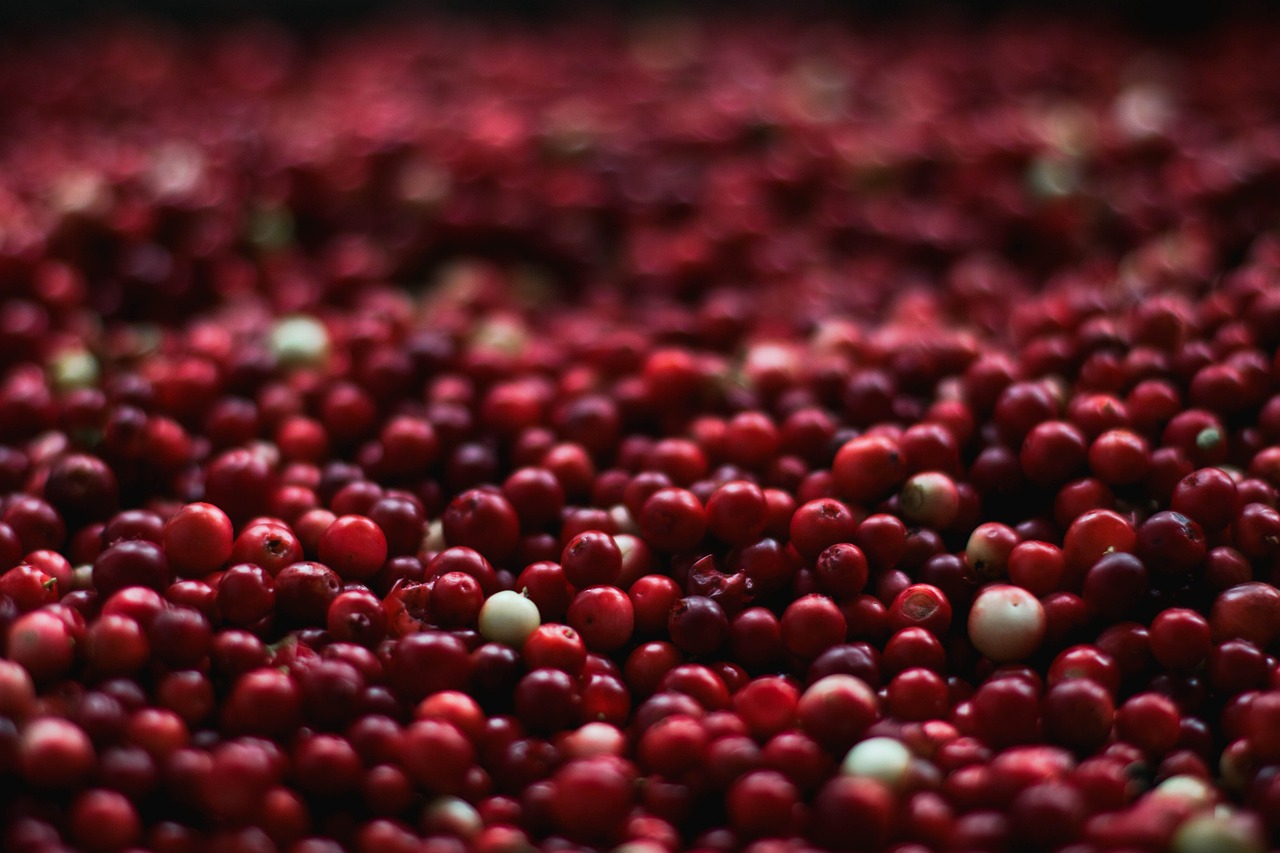
Proteins: Building Blocks of Life
Proteins are often referred to as the building blocks of life, and for good reason! Just like a house needs a solid foundation, your pet's body relies on proteins for growth, repair, and overall health. When you think of proteins, imagine tiny construction workers tirelessly repairing and building every cell in your pet's body. They play a crucial role in developing muscles, skin, and even the immune system, ensuring your furry friend stays strong and healthy.
But what exactly are proteins made of? They are composed of amino acids, which are the essential components that help in creating those vital proteins. There are 20 different amino acids, and while your pet's body can produce some of them, there are others—known as essential amino acids—that must come from their diet. It's like trying to bake a cake without all the ingredients; you need the right mix to create something delicious and nutritious!
So, where can you find these protein-rich foods? Here’s a quick rundown of some of the best sources:
- Meat: Chicken, beef, and fish are excellent sources of high-quality protein.
- Eggs: Packed with protein and easy to digest, eggs are a fantastic addition to your pet's diet.
- Dairy: Products like yogurt and cheese can provide protein, but make sure your pet isn't lactose intolerant!
- Legumes: Beans and lentils offer plant-based protein options that are great for vegetarian diets.
When considering your pet's protein intake, it's essential to strike a balance. Too little protein can lead to muscle wasting and a weakened immune system, while too much can put unnecessary strain on their kidneys. Think of it like a seesaw; finding that perfect balance is key to keeping your pet healthy and happy.
For pets, the recommended daily protein intake can vary based on their age, size, and activity level. For example, puppies and kittens need more protein to support their rapid growth, while older pets may require less. It's always a good idea to consult with your veterinarian to tailor your pet's diet to their specific needs. After all, they know your pet better than anyone!
In conclusion, ensuring your pet receives adequate protein is essential for their overall health and well-being. By incorporating a variety of protein sources into their diet, you can help your furry friend thrive. Remember, a well-fed pet is a happy pet!

Fats: Energy and Nutrient Absorption
Fats are often misunderstood in the world of pet nutrition. Many pet owners might think that fats are simply a source of unwanted calories, but in reality, they are essential for your pet's overall health and well-being. Just like how a car needs fuel to run, your pet requires fats not only for energy but also for the absorption of important vitamins and minerals. Without adequate fat in their diet, your furry friend could face a myriad of health issues, ranging from dry skin to a lackluster coat.
When we talk about fats, it's important to recognize that not all fats are created equal. There are different types of fats, each playing a unique role in your pet's health. For instance, unsaturated fats are generally considered the "good" fats, as they can help reduce inflammation and are beneficial for heart health. On the other hand, saturated fats should be consumed in moderation, while trans fats should be avoided altogether as they can lead to serious health problems.
One of the key benefits of fats is their role in nutrient absorption. Certain vitamins, specifically A, D, E, and K, are fat-soluble, meaning they require fat to be properly absorbed by the body. Imagine trying to enjoy a delicious salad without dressing; the nutrients from the vegetables would remain largely inaccessible. Similarly, without fats, your pet's body would struggle to utilize these vital nutrients effectively.
Incorporating healthy fats into your pet's diet can be as simple as choosing the right food. Look for high-quality pet foods that list sources of healthy fats, such as fish oil, flaxseed oil, or chicken fat. These ingredients not only provide energy but also contribute to a shiny coat and healthy skin. You might also consider adding omega-3 and omega-6 fatty acids to your pet's diet, which are known for their anti-inflammatory properties and overall health benefits.
To give you a clearer picture of how fats contribute to your pet's health, here's a quick breakdown of the types of fats and their benefits:
| Type of Fat | Benefits |
|---|---|
| Unsaturated Fats | Heart health, anti-inflammatory properties |
| Saturated Fats | Energy source (to be consumed in moderation) |
| Trans Fats | Should be avoided |
Lastly, it's crucial to monitor your pet for any signs of fat deficiency. Symptoms might include a dull coat, dry skin, or excessive shedding. If you notice any of these signs, it may be time to reassess your pet's diet and consult your veterinarian. Remember, just as we need a balanced diet for optimal health, so do our beloved pets!
- What are the best sources of healthy fats for pets? - Look for fish oil, flaxseed oil, and chicken fat in pet foods.
- How much fat should be included in my pet's diet? - This varies by breed and age, so consult your vet for personalized advice.
- Can too much fat harm my pet? - Yes, excessive fat can lead to obesity and other health issues, so moderation is key.
Types of Fats
When it comes to your pet's health, understanding the they consume is just as important as knowing the types of proteins or carbohydrates. Fats are not merely a source of energy; they play a crucial role in various bodily functions. To simplify, we can categorize fats into three primary types: saturated fats, unsaturated fats, and trans fats. Each type has distinct characteristics and effects on your pet's health, and being aware of these can help you make better dietary choices for your furry friend.
Saturated fats are typically solid at room temperature and are found in animal-based products such as meat, dairy, and certain oils. While they are necessary for some bodily functions, excessive intake can lead to health issues like obesity and heart disease. Therefore, it's essential to balance the amount of saturated fat in your pet's diet.
On the other hand, unsaturated fats are usually liquid at room temperature and are considered healthier options. They are further divided into two categories: monounsaturated and polyunsaturated fats. Monounsaturated fats, found in olive oil and avocados, can help reduce bad cholesterol levels. Polyunsaturated fats, which include Omega-3 and Omega-6 fatty acids, are vital for your pet’s skin and coat health, as well as overall well-being. These fats can be sourced from fish oil, flaxseed oil, and various nuts and seeds.
Now, let’s talk about trans fats. These are the fats you want to avoid at all costs. Often found in processed foods, trans fats can raise bad cholesterol levels while lowering good cholesterol levels, leading to serious health risks. It's crucial to read labels and ensure that your pet's food does not contain any trans fats.
| Type of Fat | Sources | Health Impact |
|---|---|---|
| Saturated Fats | Meat, Dairy, Coconut Oil | Can contribute to obesity and heart disease if consumed in excess |
| Unsaturated Fats | Olive Oil, Fish Oil, Nuts | Can improve cholesterol levels and support skin health |
| Trans Fats | Processed Foods, Fried Foods | Highly detrimental; raises bad cholesterol and lowers good cholesterol |
In summary, knowing the and their implications can significantly enhance your pet’s nutrition. It's not just about adding fat to their diet; it's about choosing the right kinds that promote health and vitality. So, the next time you're shopping for pet food or considering a dietary supplement, keep these types in mind. Your pet's health could very well depend on it!
- What is the best type of fat for my pet? Unsaturated fats, especially Omega-3 and Omega-6 fatty acids, are generally considered the healthiest options for pets.
- Can my pet have saturated fats? Yes, but in moderation. It's essential to balance your pet's diet to avoid health issues.
- Are trans fats ever safe for pets? No, trans fats should be avoided entirely as they can lead to serious health problems.
Omega Fatty Acids
Omega-3 and Omega-6 fatty acids are not just trendy buzzwords in the pet nutrition world; they are vital components of your furry friend's diet. These essential fatty acids play a significant role in maintaining your pet's overall health, from promoting a shiny coat to supporting heart health. Imagine Omega-3s as the superheroes of your pet's diet, swooping in to combat inflammation and boost their immune system. Meanwhile, Omega-6s are like the trusty sidekicks, helping to maintain skin health and regulate metabolism.
So, why are these fatty acids so important? First off, pets, like humans, cannot produce Omega-3 and Omega-6 fatty acids on their own, which means they must be obtained through diet. Omega-3s are primarily found in fish oil, flaxseed oil, and certain algae, while Omega-6s are abundant in vegetable oils such as sunflower and corn oil. Incorporating these into your pet's meals can make a world of difference in their health and vitality.
But let's not stop there! The benefits of Omega fatty acids extend beyond just a shiny coat. Studies have shown that Omega-3 fatty acids can help reduce the risk of chronic diseases, improve cognitive function, and even enhance joint health in older pets. On the other hand, Omega-6 fatty acids are crucial for maintaining the integrity of cell membranes and supporting skin barrier functions, which can lead to fewer skin irritations and allergies.
Here’s a quick breakdown of the benefits of Omega fatty acids:
- Omega-3: Reduces inflammation, supports heart health, and improves cognitive function.
- Omega-6: Enhances skin health, supports metabolism, and aids in cell membrane integrity.
When considering how to incorporate these fatty acids into your pet's diet, it's essential to choose high-quality sources. Fish oil supplements are a popular choice, but you can also find pet foods enriched with Omega fatty acids. Always consult with your veterinarian before making any significant dietary changes, as they can help you determine the right balance for your pet's specific needs.
In summary, Omega-3 and Omega-6 fatty acids are crucial for your pet's health, acting as powerful allies in the battle for overall wellness. By ensuring that your pet receives these essential nutrients, you're not just feeding them; you're investing in their long-term health and happiness.
Q: Can I give my pet human fish oil supplements?
A: While some human fish oil supplements may be safe for pets, it's always best to consult your vet first. They can recommend the appropriate dosage and ensure it's suitable for your pet's specific needs.
Q: How can I tell if my pet is getting enough Omega fatty acids?
A: Look for signs like a shiny coat, healthy skin, and overall vitality. If your pet has dry skin, dull fur, or exhibits signs of inflammation, it might be time to reassess their diet.
Q: Are there vegetarian sources of Omega fatty acids?
A: Yes! Flaxseed oil and algae-based supplements are excellent vegetarian sources of Omega-3 fatty acids.
Healthy Oils for Pets
When it comes to your pet's diet, healthy oils can be a game-changer. Just like humans, pets need a balance of fats in their diet, and incorporating the right oils can enhance their health in numerous ways. These oils not only provide essential fatty acids but also support skin health, boost energy levels, and improve overall vitality. Imagine oils as the lubricants that keep your pet's body running smoothly, much like oil in a well-functioning engine. So, what are the best oils to consider for your furry friend?
First up, we have fish oil, which is rich in Omega-3 fatty acids. These fatty acids are essential for maintaining a shiny coat and healthy skin. They can also help reduce inflammation, making them particularly beneficial for pets with allergies or joint issues. Another fantastic option is flaxseed oil, a wonderful source of Omega-3s for those pets who may be allergic to fish. Flaxseed oil provides a plant-based alternative that can help keep your pet's skin supple and their fur lustrous.
Next on the list is coconut oil. This versatile oil is not only great for cooking but also offers several health benefits for pets. It contains medium-chain triglycerides (MCTs) that can boost energy and support cognitive function. Plus, coconut oil has antimicrobial properties, which can help keep your pet's skin healthy and free from infections. Just a small amount can make a big difference!
It's also important to consider olive oil in your pet's diet. Rich in antioxidants and healthy fats, olive oil can help improve heart health and maintain a healthy weight. It can be drizzled over your pet's food for added flavor and nutrition. However, moderation is key, as too much oil can lead to weight gain.
To help you understand the benefits of these oils better, here's a quick comparison table:
| Oil Type | Key Benefits | Best For |
|---|---|---|
| Fish Oil | Rich in Omega-3, reduces inflammation | Skin and coat health, joint support |
| Flaxseed Oil | Plant-based Omega-3 source | Skin health, shiny coat |
| Coconut Oil | Boosts energy, antimicrobial properties | Cognitive function, skin health |
| Olive Oil | Rich in antioxidants, heart health | Weight management, overall health |
When introducing any new oil to your pet's diet, it's crucial to do so gradually. Start with small amounts and monitor your pet for any adverse reactions. Each pet is unique, and what works for one might not work for another. Always consult your veterinarian if you're unsure about how much oil to add or which types are best for your pet's specific needs.
In summary, incorporating healthy oils into your pet's diet can significantly enhance their overall well-being. From promoting a shiny coat to supporting cognitive health, these oils are a fantastic addition to your furry friend's meals. Just remember to choose high-quality oils and use them in moderation to keep your pet happy and healthy!
- Can I use human oils for my pets? It's best to stick to oils specifically formulated for pets, as some human oils can be harmful.
- How much oil should I give my pet? Start with a small amount, about 1/4 teaspoon for small pets and up to 1 tablespoon for larger pets, and adjust as needed.
- Are there any oils I should avoid? Yes, avoid oils high in saturated fats, such as palm oil, and always check with your vet.
Signs of Fat Deficiency
Recognizing the signs of fat deficiency in your pet is crucial for ensuring their overall health and well-being. Just like humans, pets require a balanced intake of fats for energy, nutrient absorption, and maintaining healthy skin and coat. If your furry friend is lacking in healthy fats, you may notice some alarming changes in their behavior and physical appearance. So, what should you look out for?
One of the first signs of fat deficiency is a dry and flaky coat. If your pet's fur seems dull, brittle, or is shedding more than usual, it could indicate that they are not getting enough essential fatty acids. Additionally, you might observe increased scratching or itching, which can be a sign of skin irritation linked to inadequate fat intake. Think of fats as the oil that keeps the machinery running smoothly; without it, everything can start to wear down.
Another noticeable symptom is weight loss or difficulty in maintaining a healthy weight. Fats are a concentrated source of energy, and without them, your pet may struggle to gain or retain weight. If your pet seems to be eating normally but still losing weight, it could be a signal that their diet is lacking in essential fats. Furthermore, lethargy and decreased activity levels can also be indicators of fat deficiency, as your pet may not have the energy they need to engage in their usual playful antics.
In some cases, you might also notice poor wound healing. Fats play a vital role in the body's ability to heal, and a deficiency can slow down recovery from injuries or surgeries. If your pet has a wound that seems to be taking longer to heal than expected, it might be worth considering their dietary fat intake. Lastly, behavioral changes such as increased irritability or mood swings could point to nutritional imbalances, including a lack of healthy fats.
To summarize, here are some key signs that your pet may be experiencing a fat deficiency:
- Dry, flaky coat
- Increased scratching or itching
- Weight loss or difficulty maintaining a healthy weight
- Lethargy and decreased activity levels
- Slow wound healing
- Behavioral changes
If you notice any of these signs in your beloved pet, it’s essential to consult with your veterinarian. They can help assess your pet's diet and recommend appropriate changes to ensure they receive the necessary nutrients, including healthy fats. Remember, a well-balanced diet is key to a happy and healthy pet!
Q: How can I ensure my pet is getting enough fats in their diet?
A: You can ensure your pet is getting enough fats by including high-quality pet food that lists healthy fats in the ingredients. Additionally, consider adding sources of omega fatty acids, such as fish oil or flaxseed oil, to their meals. Always consult with your veterinarian before making any significant changes to your pet's diet.
Q: What types of fats should I avoid in my pet's diet?
A: Avoid trans fats and highly processed fats, as they can lead to health issues. Instead, focus on incorporating healthy fats such as omega-3 and omega-6 fatty acids found in fish, flaxseeds, and certain oils.
Q: Can I give my pet human food to increase their fat intake?
A: While some human foods can be beneficial, it's essential to consult with your veterinarian first. Foods like avocados and certain nuts can be harmful to pets, so always check before sharing your meals with them.

Carbohydrates: Energy Sources
When it comes to fueling your furry friend, carbohydrates are like the gas in a car – they provide the necessary energy for all those playful zoomies and lazy afternoon snoozes. Just like us, pets need a balanced diet to thrive, and carbohydrates play a pivotal role in that equation. They are not just fillers; they are essential for maintaining your pet's overall health and vitality.
Carbohydrates can be divided into two main categories: simple carbohydrates and complex carbohydrates. Simple carbohydrates, found in foods like fruits and some vegetables, are quickly absorbed and provide a rapid source of energy. On the other hand, complex carbohydrates, which you’ll find in grains and legumes, are digested more slowly, offering a steady release of energy over time. This is particularly beneficial for pets that lead active lifestyles, as they can sustain their energy levels throughout the day.
But wait, there's more! Not all carbohydrates are created equal. Some carbohydrates come packed with additional benefits, like fiber, which is vital for your pet's digestive health. Fiber aids in digestion, helps maintain a healthy weight, and can even lower the risk of certain diseases. So, when you’re selecting food for your pet, look for options that include high-quality sources of carbohydrates, such as:
- Brown rice
- Sweet potatoes
- Oats
- Barley
These foods not only provide energy but also support healthy digestion. It's like giving your pet a two-for-one deal – energy plus health benefits!
Now, you might be wondering, "How much carbohydrate should I include in my pet's diet?" The answer can vary based on your pet's age, size, and activity level. Generally, a balanced diet for dogs and cats should consist of about 30-70% carbohydrates. However, it's always best to consult with your veterinarian to tailor the diet specifically to your pet's needs.
In summary, carbohydrates are crucial for your pet's energy and overall health. By providing a mix of simple and complex carbohydrates, along with fiber-rich options, you can help ensure your pet stays active, healthy, and happy. Remember, a well-fed pet is a happy pet!
- Are carbohydrates necessary for pets? Yes, carbohydrates are essential for providing energy and supporting overall health.
- What are some good sources of carbohydrates for pets? Good sources include brown rice, sweet potatoes, oats, and barley.
- How much carbohydrates should my pet eat? Generally, carbohydrates should make up about 30-70% of your pet's diet, depending on their individual needs.
- Can pets have too many carbohydrates? Yes, too many carbohydrates can lead to weight gain and other health issues, so balance is key.
Complex vs. Simple Carbohydrates
When it comes to your pet's diet, understanding the difference between complex and simple carbohydrates is crucial for ensuring they get the right kind of energy. Think of carbohydrates as fuel for your pet—like how gasoline powers a car. But not all fuel is created equal! Just as high-octane fuel will get your car running smoothly, the right carbohydrates will keep your furry friend energetic and healthy.
Simple carbohydrates are like quick snacks; they provide a rapid burst of energy but can lead to a crash just as quickly. These carbs are found in foods such as sugars and refined grains. While they can be beneficial in moderation, too many simple carbs can cause spikes in blood sugar levels, leading to potential health issues like obesity and diabetes. Common sources of simple carbohydrates in pet food include:
- White rice
- Potatoes
- Processed grains
On the other hand, complex carbohydrates are the slow-burning fuel your pet needs for sustained energy. They are made up of longer chains of sugar molecules, which means they take longer to break down and digest. This slow digestion results in a gradual release of energy, keeping your pet active and alert throughout the day. Complex carbs are found in foods like whole grains, vegetables, and legumes. Here’s a quick comparison of the two types:
| Type of Carbohydrate | Sources | Benefits |
|---|---|---|
| Simple Carbohydrates | Sugars, white rice, processed grains | Quick energy boost, but can lead to energy crashes |
| Complex Carbohydrates | Whole grains, vegetables, legumes | Steady energy release, supports digestive health |
Incorporating a mix of both types into your pet's diet can be beneficial, but it’s essential to lean more towards complex carbohydrates. They not only provide energy but also come packed with fiber, which is crucial for your pet's digestive health. Fiber helps regulate bowel movements and can prevent issues such as constipation. So, when you’re selecting food for your pet, consider opting for products that list whole grains and vegetables as primary ingredients.
In summary, while both complex and simple carbohydrates have a place in your pet's diet, prioritizing complex carbs can lead to a healthier, happier companion. Just remember, it’s all about balance! And if you’re ever in doubt, consulting with your veterinarian can help you make the best choices for your furry friend.
Fiber and Digestive Health
When it comes to your pet's health, fiber is often the unsung hero. Just like we need fiber to keep our digestive systems running smoothly, our furry companions require it too! Fiber plays a vital role in maintaining a healthy gut, preventing constipation, and even aiding in weight management. Think of fiber as the broom that sweeps through your pet's intestines, ensuring everything is moving along as it should. Without enough fiber, your pet might face a host of digestive issues that can lead to discomfort and health problems.
So, what exactly does fiber do? It helps to add bulk to your pet's stool, making it easier for them to pass. This is particularly important for pets that may be prone to constipation or those that are older and may have slower digestive systems. Additionally, fiber can help regulate blood sugar levels, which is essential for pets with diabetes or those at risk of developing it. It’s like having a reliable friend who keeps everything in check!
There are two main types of fiber: soluble and insoluble. Soluble fiber dissolves in water and forms a gel-like substance, which can help slow digestion and stabilize blood sugar levels. On the other hand, insoluble fiber does not dissolve in water and adds bulk to the stool, promoting regular bowel movements. Both types are important for a balanced diet, and incorporating a variety of fiber sources can help your pet reap the maximum benefits.
Now, let’s talk about where to find this magical fiber. Some excellent sources include:
- Vegetables: Carrots, peas, and sweet potatoes are not only tasty but also packed with fiber.
- Fruits: Apples (without seeds) and blueberries can be great treats that add fiber to your pet's diet.
- Whole Grains: Brown rice and oats are wonderful sources of fiber that can be included in your pet's meals.
- Psyllium Husk: This natural fiber supplement can be added to your pet's food for an extra fiber boost.
It's important to introduce fiber gradually into your pet's diet. Just like us, pets can experience digestive upset if they suddenly get a lot more fiber than they're used to. Start with small amounts and increase gradually while monitoring your pet's reaction. You want to ensure that their digestive system adjusts comfortably without any hiccups.
In conclusion, fiber is a crucial component of your pet's diet that can significantly impact their overall health and well-being. By ensuring your pet receives adequate fiber, you’re not just helping their digestive health; you’re contributing to their happiness and longevity. Remember, a happy gut leads to a happy pet!
1. How much fiber does my pet need?
The amount of fiber can vary depending on your pet's size, age, and specific health needs. Generally, a diet containing around 2-5% fiber is recommended for dogs, while cats may need about 1-2%. It's best to consult your veterinarian for personalized advice.
2. Can too much fiber be harmful?
Yes, excessive fiber can lead to digestive issues such as gas and bloating. It's essential to introduce fiber gradually and monitor your pet's response.
3. What are the signs that my pet may need more fiber?
Signs of low fiber may include constipation, irregular bowel movements, or excessive weight gain. If you notice these symptoms, consider discussing dietary changes with your vet.
4. Are there any fiber supplements available for pets?
Yes, there are several fiber supplements available, such as psyllium husk and pumpkin puree, which can be added to your pet's food for an extra fiber boost.
Frequently Asked Questions
- What are the essential nutrients my pet needs?
Every pet requires a balanced diet that includes proteins, fats, carbohydrates, vitamins, and minerals. These nutrients work together to support your pet's overall health, growth, and energy levels. Ensuring your pet gets a mix of these nutrients can help them lead a happy and healthy life!
- How can I ensure my pet is getting enough protein?
To provide adequate protein, include high-quality sources such as lean meats, fish, and eggs in their diet. You can also find protein-rich pet foods specifically formulated for your pet's needs. Always check the ingredient list to ensure protein is one of the primary components!
- Are all fats bad for my pet?
No way! Fats are essential for energy and help absorb vitamins. It's important to focus on healthy fats, like those found in fish oil and flaxseed oil. Just like us, pets need the right kind of fats for optimal health.
- What are omega fatty acids, and why are they important?
Omega-3 and Omega-6 fatty acids are types of polyunsaturated fats that are crucial for maintaining a healthy coat and skin in pets. They also help support joint health and reduce inflammation. You can find these in fish oil and certain plant oils!
- How do I know if my pet has a fat deficiency?
Signs of fat deficiency can include a dull coat, dry skin, and excessive shedding. If you notice these symptoms, it might be time to reevaluate your pet's diet and consider adding healthy fats. Always consult your vet for personalized advice!
- What role do carbohydrates play in my pet's diet?
Carbohydrates are the primary source of energy for pets. They help fuel your pet's daily activities and support overall health. Including complex carbohydrates, like whole grains and vegetables, can provide sustained energy and aid digestion!
- What is the difference between simple and complex carbohydrates?
Simple carbohydrates are quick energy sources, often found in sugary foods, while complex carbohydrates provide longer-lasting energy and are found in whole grains and vegetables. For a balanced diet, focus on complex carbs to keep your pet energized throughout the day!
- Why is fiber important for my pet?
Fiber is vital for maintaining healthy digestion in pets. It helps regulate bowel movements and can prevent issues like constipation. Including fiber-rich foods, such as fruits and vegetables, in your pet's diet can support their digestive health!

